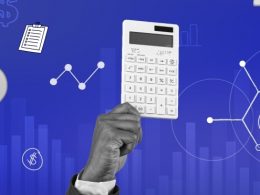Our fast-paced world has transformed many jobs, but few seem to have changed as much as what accountants typically did even 20 years ago compared to today, next year, or the next decade. The accountant’s role has long transformed from mere bookkeeping to encompassing more duties and responsibilities: from financial reporting and analyzing business performance to helping with taxation (and many more).
So, let’s look at the accountant roles of today and the current trends that influence what the roles of an accountant of tomorrow will entail.
Bring your practice closer to your clients by bridging this gap with technology. Explore Synder accounting for your e-commerce and SaaS clients.
Hop on reading to learn more about the role of an accountant:
1. Accountants: a quick job description
2. Different types of accounting careers
3. What influences the change in accountants’ role and functions?
4. Roles, duties, and accountant responsibilities today and in the next decade
Accountants: a quick job description
We’ll start with a brief overview of accounting and its role in managing a business – a very general accountant’s job description.
By definition, accounting – or accountancy – is a system of principles, and procedures that aim at recording, keeping, and analyzing business and financial transactions to further report on financial health and performance and power up strategic decision-making.
The professional help of an accountant can be beneficial at many points, such as:
- Breaking down a business’s performance. Accounting helps make sense of financial information, providing insights into a company’s financial health and performance. By revealing at which points a company makes a profit and where it’s losing cash, an accountant helps figure out what needs improvement, when is the right time for growth, and much more. Making such discoveries is, basically, a part of the accountant’s job.
- Backing up important decision-making. One of the biggest benefits of accounting is supporting business-critical decisions with accurate data. An accountant provides financial information to management by researching and analyzing accounting data to give them solid grounds on which to build their decisions.
- Providing transparency for stakeholders. Accounting can help showcase your business’s financial information to various interested parties, such as stakeholders or potential investors so they can assess whether your business is worth investing in and what return they can anticipate.
As you can see, accounting is integral for managing a business, and the role of an accountant is significant. Accounting errors or misinterpreting accounting data can be costly for a business. So at this point, businesses might want to partner with a good accountant, whether as a part of the team or an external consultant.
Different types of accounting careers
Accounting is applicable in many spheres and industries. And depending on the scope of responsibilities, the goals to achieve, the environment to work in, and more, people can pursue various accounting careers. But in general, they fall into four big categories.
Public accountant
Public accounting involves working with various clients — businesses or individuals — as external consultants and being either a part of an accounting firm or working individually. Public accountants usually help with accounting records, financial statements, and tax filing. At this point, public accountants should possess strong knowledge of GAAP and the tax code.
Corporate accountant
A corporate accountant is usually a part of a company or corporation, and their responsibilities might comprise handling financial data for external reporting and tax compliance. This role involves knowing various accounting methodologies to ensure the accuracy of a company’s records and the compliance of financial and tax submissions with the general standards and regulations (both internal and international).
Forensic accountant
Forensic accounting usually involves dealing with financial data that is hard to get, so it implies a lot of investigation to collect or reconstruct the data. Being a forensic accountant is challenging, as it requires a deep understanding of accounting principles and practices and the ability to solve complex problems. At the same time, it’s a rewarding career offering a flexible choice of employment: within large law firms, federal or governmental entities, or being a self-employed consultant providing services to corporations and various private entities.
Governmental accountant
Accountants who work for government entities, whether local, state, or federal, typically have different responsibilities and procedures than public accountants. They might be required to go through a more rigorous vetting process and be entrusted with keeping sensitive information confidential. Government financial experts are employed to audit documents, store records, and manage resources for governmental organizations.
What influences the change in accountants’ role and functions?
Accounting has come a long way throughout history. From early Mesopotamian records of goods sold and bought around 7,000 years ago to the first bookkeepers recording barters of goods around 2000 B.C. From the first attempts at single-entry bookkeeping in the 1400s to the invention of double-entry bookkeeping almost a hundred years after. From the first financial documents required with the rise of corporations in the 1800s and the formal recognition of accounting as a profession in 1896 to the skyrocketing of its demand with the advent of the income tax in 1913.
As you can see, many factors influenced the development of accounting. It’s a constant process as new challenges arise, making accounting professionals adjust to new demands. Let’s look at the trends that affect the change in accountants’ roles, duties, and responsibilities today.
Accounting automation
Since accounting automation software emerged and hit the market, like QuickBooks or Xero and other popular solutions, there’ve been talks about how they’ll rip accounting professionals off jobs. Apparently, the software could automate a substantial part of the bookkeeper’s and accountant’s work. And at some point, automating certain tasks became necessary for accountants to keep providing quality services, especially after the rise and rapid growth of the e-commerce sphere, where accountants faced the need to deal with large volumes of data from multiple sources. But in fact, automation never meant substituting professionals at their work, and it never did. Right the opposite of what the feared voices had been telling, the implementation of accounting and bookkeeping software allowed professionals to dramatically streamline their practice by spending less time on manual data input, eliminating errors associated with manual work, getting access to more accurate data, and expanding their analytical possibilities.
Learn how we can help to improve your accounting practice during a 1:1 call designed specifically for accounting professionals.
Requirements to data security
After surviving several crises of late, the financial industry introduced high requirements for the transparency of reporting and security of financial information. It greatly influenced how accountants and financial professionals work with financial statements and treat sensitive data. To keep up with the change, accountants had to embrace and remain up-to-date with security measures and data protection practices to ensure the safety of the organization they work for or clients’ private information.
High demand in data analysis
As mentioned, technology helped accountants shift their primary focus from keeping the books, reconciling accounts, and helping prepare tax returns to analyzing a business’s financial health and performance and assisting in decision-making. While previously auditors were more likely to possess strong analytical skills, now accountants and CPAs working with businesses should also be skilled in business analysis. Business owners expect accounting professionals to be able to drill into their data to not only report on the current financial state of the business but also identify patterns in consumer behavior and market trends to advise on growth opportunities and higher profits.
Roles, duties, and accountant responsibilities today and in the next decade
Considering everything mentioned above, those trends and challenges accounting professionals face today, and what they might have to deal with in the upcoming years, we might sum up and make a general overview of today’s most common roles, duties, and responsibilities of an accountant.
Keeping financial records and interpreting financial statements
Being responsible for keeping and interpreting financial records is one of the core accounting functions, and modern accounting software has made this task much easier and more efficient. It allows for accurate data entry and real-time analytics without any errors. Thus, accountants can quickly bring all business transactions into the books, simplifying their daily processes and improving the quality of financial records. Moreover, cloud technology enables accountants to securely access and analyze financial information from anywhere and helps in compiling financial statements to be more informative and backed by accurate data.
Preparing tax returns
The tax season is still a busy time for accountants. It requires careful attention and effort to ensure that tax returns are accurately and thoroughly prepared. Duties such as filing, paying, and organizing taxes can be demanding and time-consuming. Accountants must remain diligent and committed to their clients throughout this process. Furthermore, they must keep up with changing regulations to ensure the accuracy of their work.
Analyzing business financial data
A unique industry outlook allows accountants to take a step from being financial data managers to financial adviser positions. Having manual workflows automated by apps and accounting platforms, accountants might be able to benefit from their expertise in financial statistics, tax regulations, and pristine discipline when it comes to money data and will start advising their clients on how to manage their finances more effectively.
Providing advisory services and taking part in the business strategy
Accountants handle volumes of business data. This exposure to numbers transforms the way accountants talk numbers. Today, many businesses expect accountants to not only conclude whether the company is taking the right business path from their records but paint a picture of growth using numbers, which makes accountants learn a lot about business growth and its requirements.
With the help of AI in accounting and smart analytical software, accountants nowadays can expand the scope of their services to consultancy and offer advisory services to their clients, thus ensuring their professional relationships for years to come. They become an integral part of strategic decision-making, as they’ve got the data, know how to interpret it, and can point the right directions for changes.
Final words
We are excited to observe how technology transforms accountants’ role, bringing change in how they perform their duties and responsibilities. Accountants of the next decade might champion added value for the customers, prioritizing science over emotion and embracing technology in order to grow exponentially.
A smart accountant of the 21st century will fully utilize the power of Tech to enable automatically running systems do the job accountants were doing manually decades ago, while going deeper into complex tasks which can not only contribute towards a healthy intercompany workflow but will be able to actually increase the revenue of the companies they’re working for.
This alone is revolutionary and we can’t wait to see what happens next.







Like most qualifications, level 4 is considered a lot tougher than the former levels. Completing the level 4 qualification will provide you with the understanding and confidence you need to progress onto further education like CIMA, ACCA and ICAEW.
Thanks for helping me understand that CPAs would be handling accounting records, financial statements, and tax filing which is why they need to have a strong knowledge of GAAP and tax codes. I can imagine how broad their field is which is why you need to find a company that really specializes in what you need from them. With the right people, you can have the assurance that your company will be handled properly with your finances.
Thank you so much, Mia, for your insightful comment!
A forward-looking perspective on the evolving role of accountants. The emphasis on technology and advisory services aligns with the changing landscape. Exciting times ahead for the accounting profession!
It does make sense to seek an accountant for your startup so you can avoid unwanted financial troubles due to neglect. I can see how this can help business owners that are not well-versed in math. I should talk to my uncle about this so he could hire one for his startup.
Thanks for sharing your opinion, Zachary! I agree, accounting is not something you want to neglect (no matte how big a business you are). For a startup, I believe, it’s even more critical, as a professional can help avoid all the bottom rocks and make the most of your budgets.
Corporate accountants are essential to the financial health and strategic direction of a business. Their role is multifaceted, requiring a blend of technical skills, analytical thinking, and ethical standards.